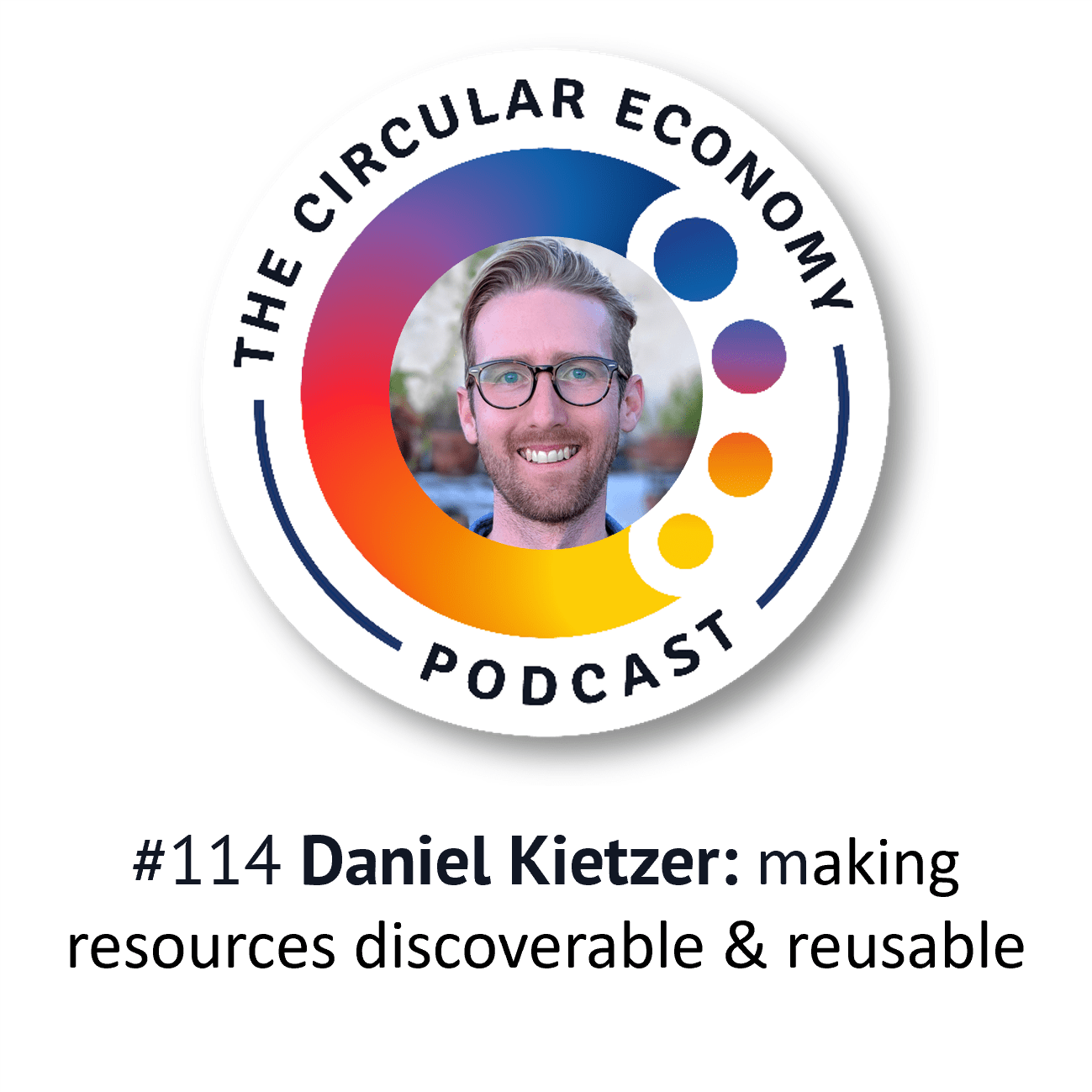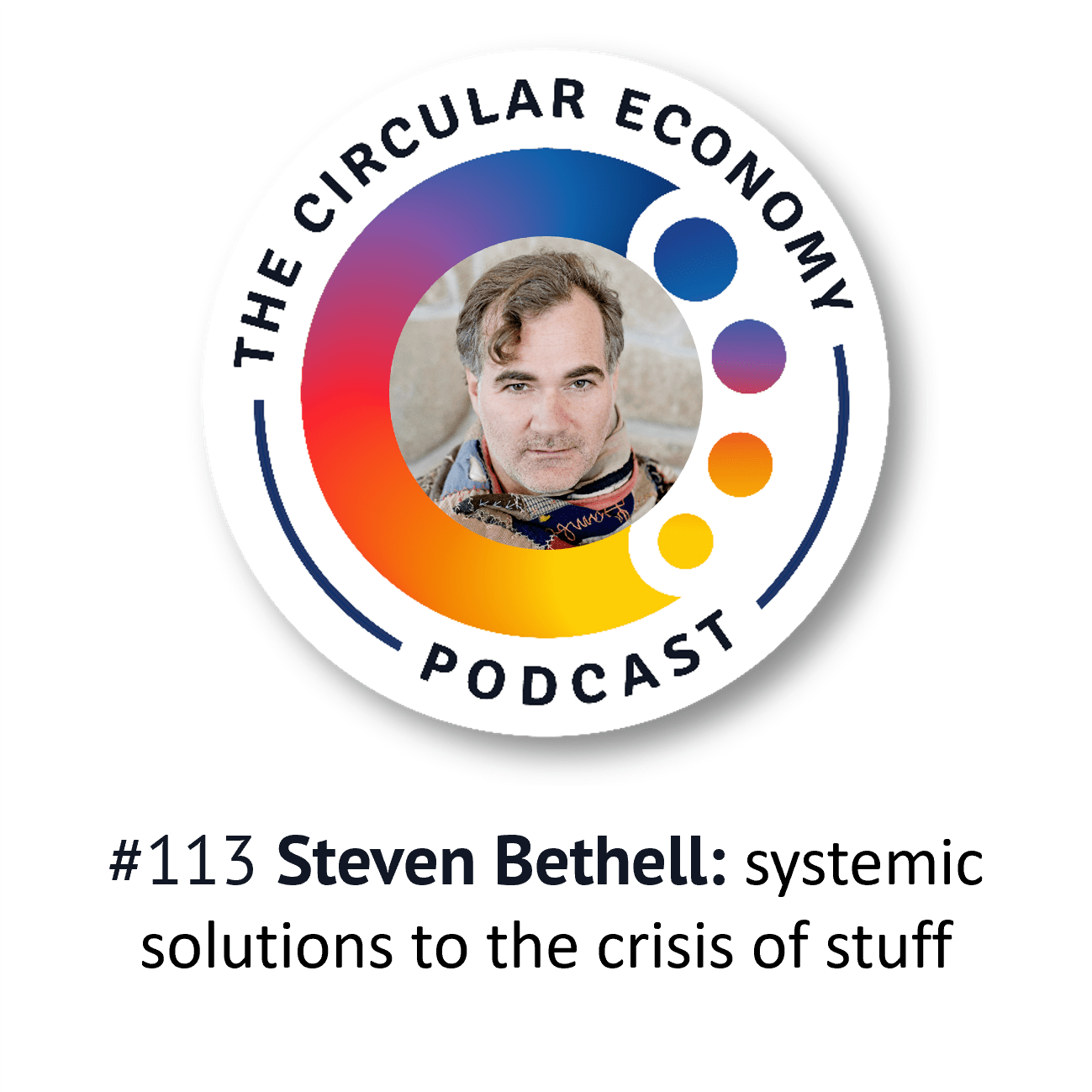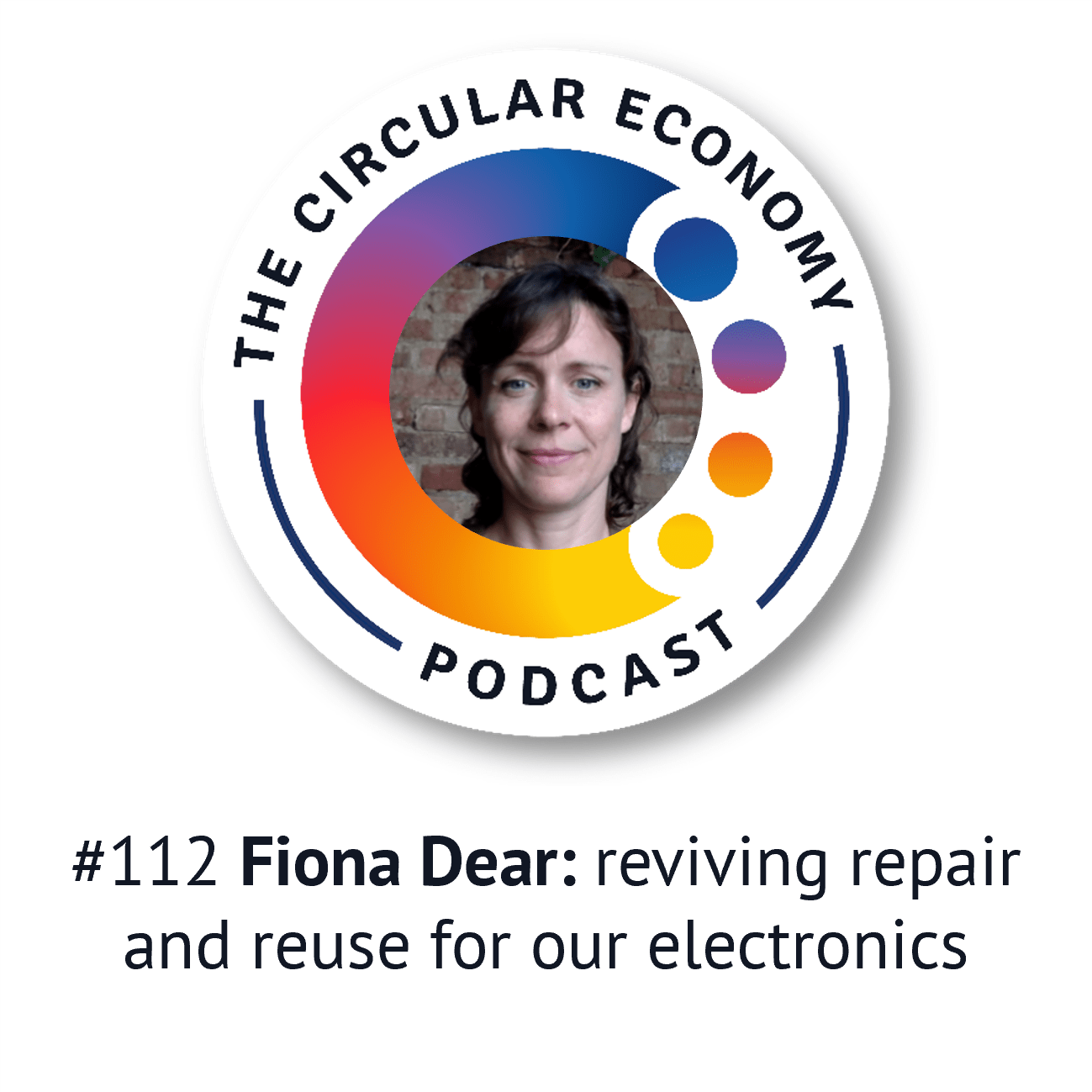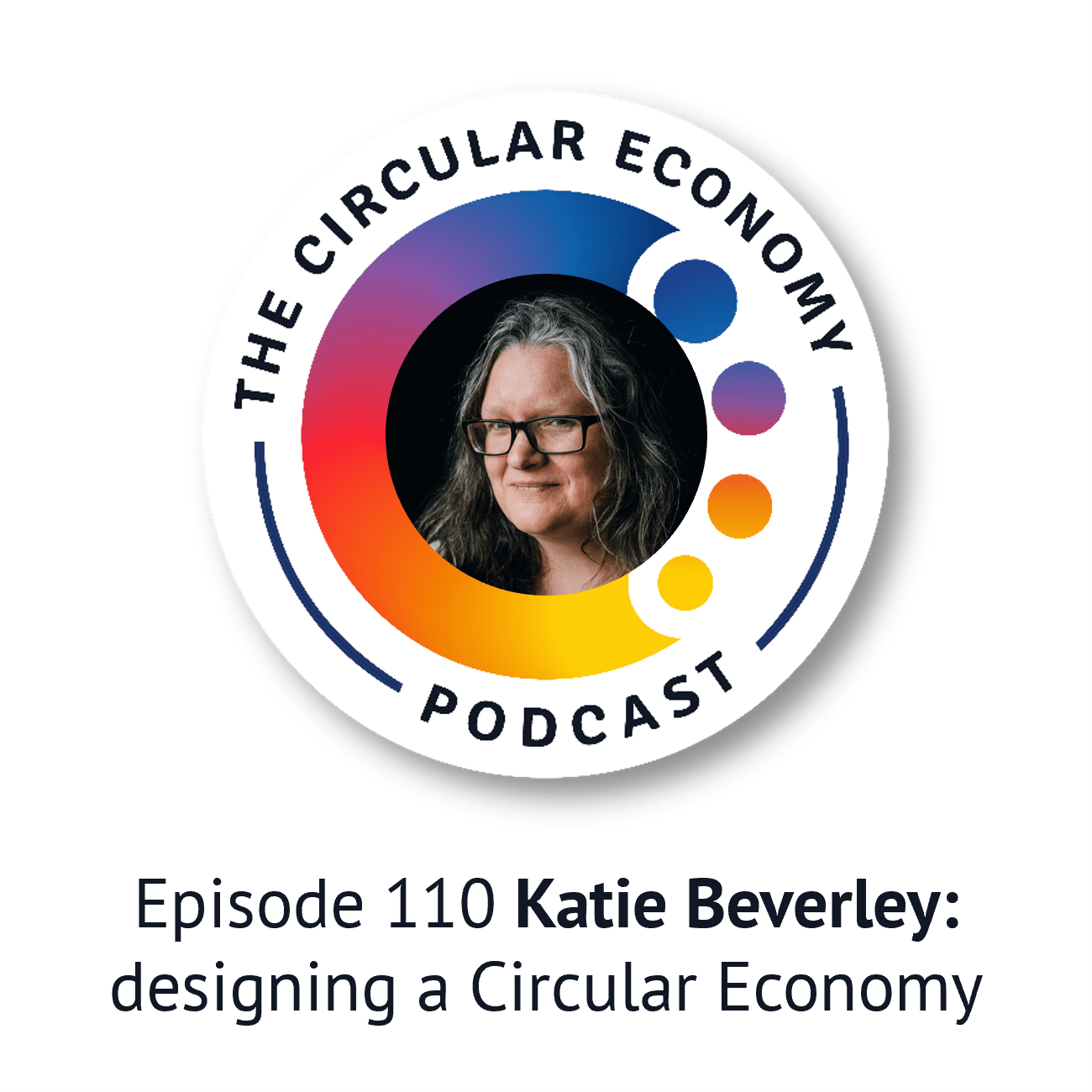Podcast: Play in new window | Download
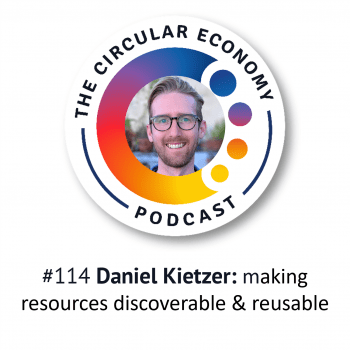
Daniel Kietzer is Director of Ecosystem Growth at Rheaply, a digital sharing platform scaling reuse by making resources discoverable, easily transferable and more valuable.
Rheaply was started in 2016, and has won lots of awards, including Most Innovative Reuse Company at the Reusies in 2021. It’s backed by a number of early-stage investors, including Microsoft and Salesforce.
Daniel Kietzer provides strategic, organizational, and technical support to Rheaply clients and their partners. He’s a circular economy and sustainability professional with 10+ years of experience designing and leading impact-focused projects with forward-thinking companies and organizations across the globe. Daniel’s speciality is reuse and recycling market development is his specialty, but he also dabbles in social entrepreneurship, sustainability in the built environment, water, carbon, and a variety of other sustainability-related efforts.
We’ll get an update on how Rheaply has evolved since my original conversation with Tom Fecarotta back in 2020, in particular how data aggregation unlocks opportunities for cost and carbon savings, as well as supporting your zero waste targets. So many organisations could be tapping into these solutions to help them do better, with less.
International speaker, author and strategic advisor, Catherine Weetman helps people discover why circular, regenerative and fair solutions are better for people, planet – and prosperity.
Catherine’s award-winning book: A Circular Economy Handbook: How to Build a More Resilient, Competitive and Sustainable Business includes lots of practical examples and tips on getting started.
Stay in touch for free insights and updates…
Read on for a summary of the podcast and links to the people, organisations and other resources we mention.
Don’t forget, you can subscribe to the podcast series on iTunes, Google Podcasts, PlayerFM, Spotify, TuneIn, or search for “circular economy” in your favourite podcast app. Stay in touch to get free insights and updates, direct to your inbox…
You can also use our interactive, searchable podcast index to find episodes by sector, by region or by circular strategy. Plus, there is now a regular Circular Economy Podcast newsletter, so you get the latest episode show notes and links delivered to your inbox on Sunday morning, each fortnight. The newsletter includes a link to the episode page on our website, with an audio player. You can subscribe by clicking this link to update your preferences.
Links we mention in the episode:
Catherine’s work:
- Circular Economy Podcast on LinkedIn: linkedin.com/showcase/circular-economy-podcast/
- Circular Economy Podcast website: circulareconomypodcast.com
- Catherine Weetman on LinkedIn: https://www.linkedin.com/in/catherine-weetman-9419107/
- A Circular Economy Handbook: How to Build a More Resilient, Competitive and Sustainable Business – buy from any good bookseller, or direct from the publisher Kogan Page, which ships worldwide (free shipping to UK and US) https://www.koganpage.com/CircEcon2
- Interactive podcast index https://www.rethinkglobal.info/circular-economy-podcast-index/
- Rethink Global www.rethinkglobal.info
- Sign up to get the podcast player and shownotes for each new episode emailed to your inbox
Links for our guest:
Books, people and organisations we mentioned
- Episode 31 with Tom Fecarotta of Rheaply https://www.rethinkglobal.info/episode-31-tom-fecarotta-of-rheaply/
- Recommended guest: Shannon Goodman, Exec Director of the Lifecycle Building Center https://www.linkedin.com/in/shannon-goodman-268aba3a
- Lifecycle Building Center https://www.lifecyclebuildingcenter.org/
- Catherine’s conversation with Janina Nieper of Furnify https://www.rethinkglobal.info/109-janina-nieper-connecting-new-designs-to-leftover-materials/
Guest bio
Daniel Kietzer is the Director of Ecosystem Growth at Rheaply, where he provides strategic, organizational, and technical support to scale and create new reuse market opportunities between Rheaply clients and partners in select priority regions. He’s a circular economy and sustainability professional with 10+ years of experience designing and leading impact-focused projects with forward-thinking companies and organizations across the globe. Reuse and recycling market development is his specialty, but he also dabbles in social entrepreneurship, sustainability in the built environment, water, carbon, and a variety of other sustainability-related efforts.
At Rheaply, we are working to scale reuse within the circular economy. We strive to help organizations reduce waste and save money. Rheaply’s reuse program brings together people and objects to make resources discoverable, easily transferable and more valuable in our global – and local – economy.
Rheaply’s ecosystem is comprised of organizations that have elected to connect and share resources in a neighborly fashion. This collaborative reuse network enables instant connections across organizations and neighborhoods, creating self-sufficient loops of assets, resources, goods, and materials. All facets of Rheaply’s ecosystem interact with one another through Rheaply’s platform to reuse and recirculate objects and resources at their highest and best use, ultimately driving value for the communities in which they operate.
Rheaply’s Circular Economy Ecosystem – How It Works
Our team works directly with Rheaply’s ecosystem and provides hands-on support to create and scale new local, high-impact reuse opportunities. These activities identify gaps, needs and opportunities to share and receive resources, provide processing or material handling services, and build community engagement around reuse and the circular economy. As a result, we help connect organizations with themselves, with likeminded partners and nonprofit organizations, and the communities they serve.
Playlist: getting started with the circular economy…
Want to know more about the what the circular economy really is, and how it can help your business? Here’s a playlist to help you get to grips with the concept, how it creates value, and the common myths (spoiler alert – it’s much more than recycling!)
- #1 What is the circular economy: A quick intro to explain what the circular economy is and why it’s important. We explore how it helps create better products and services, and at the same time helps to make a better world. I break it down into my 5 circular economy components, helping you think about each part of your business.
- #2 The linear economy and your risk checklist: We dig a bit deeper into the way we do business now, the linear economy, and why that’s creating problems for business, society and our living planet. Also, we’ll look at the risks that emerge from those big-picture issues, and how they might affect your organisation.
- #90 Does circular mean it’s sustainable? Catherine Weetman is worried that companies are using circular economy solutions to grow their business (and their footprints).
- #101 Circular is better for people, planet and profit! How three simple strategies can help you get started with circular and regenerative solutions that are better for people, planet and profit.
- #120 Priorities are changing: people find life is better when we care for and share things – circular economy strategies make that better for business, too.
And here’s Catherine’s guide: What is the circular economy?
Want to dig deeper?
Why not buy Catherine’s award-winning book, A Circular Economy Handbook: How to Build a More Resilient, Competitive and Sustainable Business. This comprehensive guide uses a bottom-up, practical approach, and includes hundreds of real examples from around the world, to help you really ‘get’ the circular economy. Even better, you’ll be inspired with ideas to make your own business more competitive, resilient and sustainable.
Please let us know what you think of the podcast – and we’d love it if you could leave us a review on iTunes, or wherever you find your podcasts. Or send us an email…
Please let us know what you think of the podcast – and we’d love it if you could leave us a review on iTunes, or wherever you find your podcasts. Or send us an email…
Podcast music
Thanks to Belinda O’Hooley and Heidi Tidow, otherwise known as the brilliant, inventive and generous folk duo, O’Hooley & Tidow for allowing me to use the instrumentals from the live version of Summat’s Brewin’ as music for the podcast. You can find the whole track (inspired by the Copper Family song “Oh Good Ale”) on their album, also called Summat’s Brewin’. Or, follow them on Twitter.
